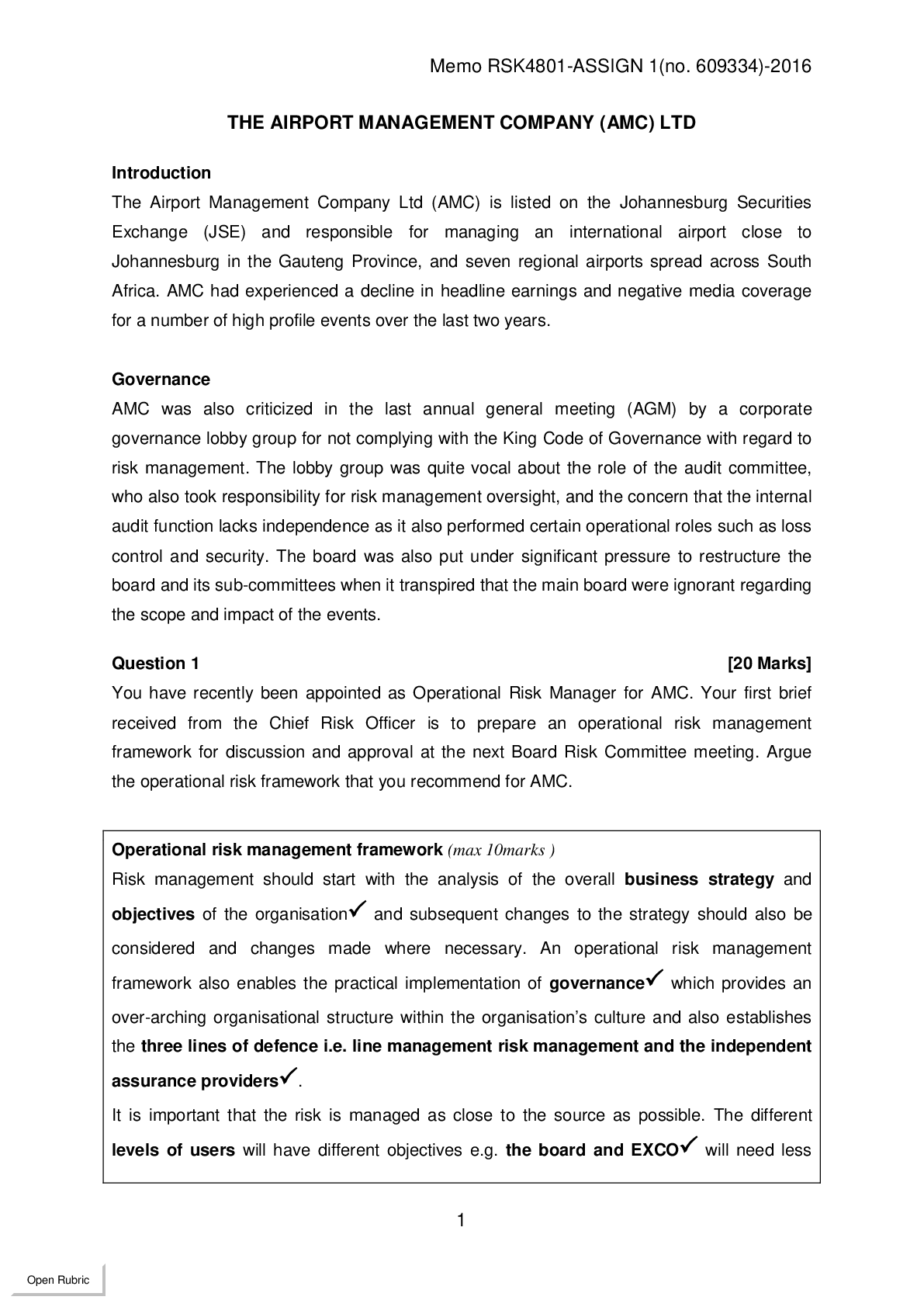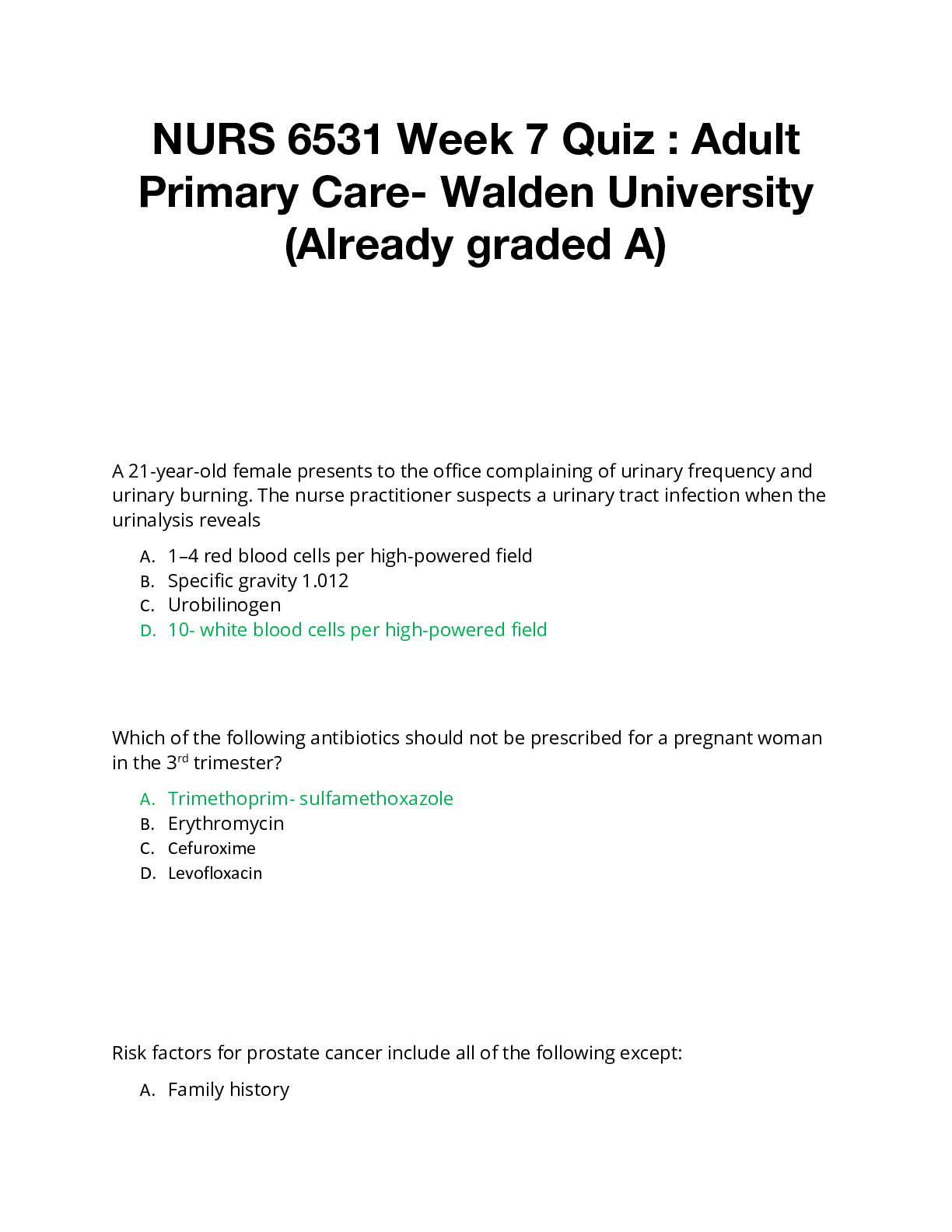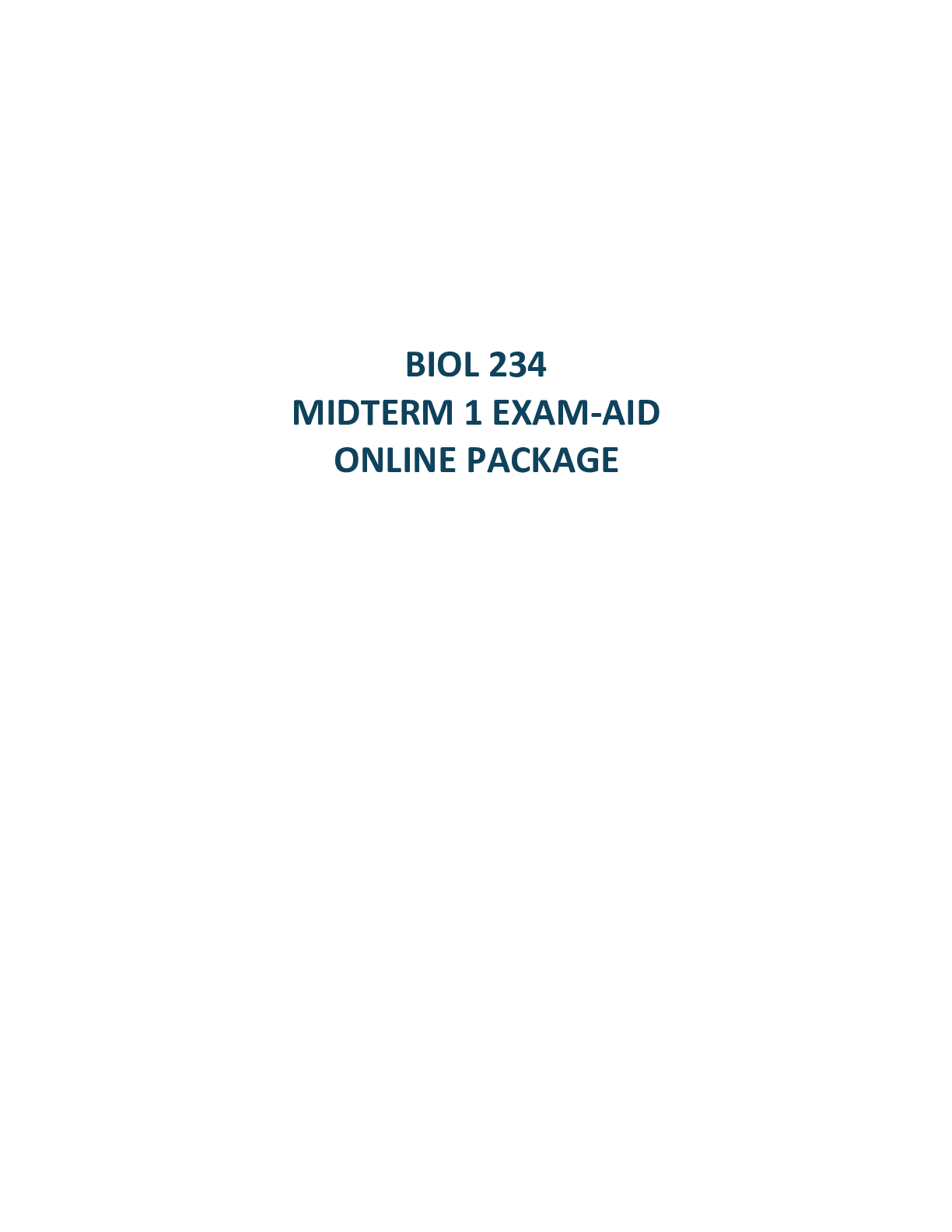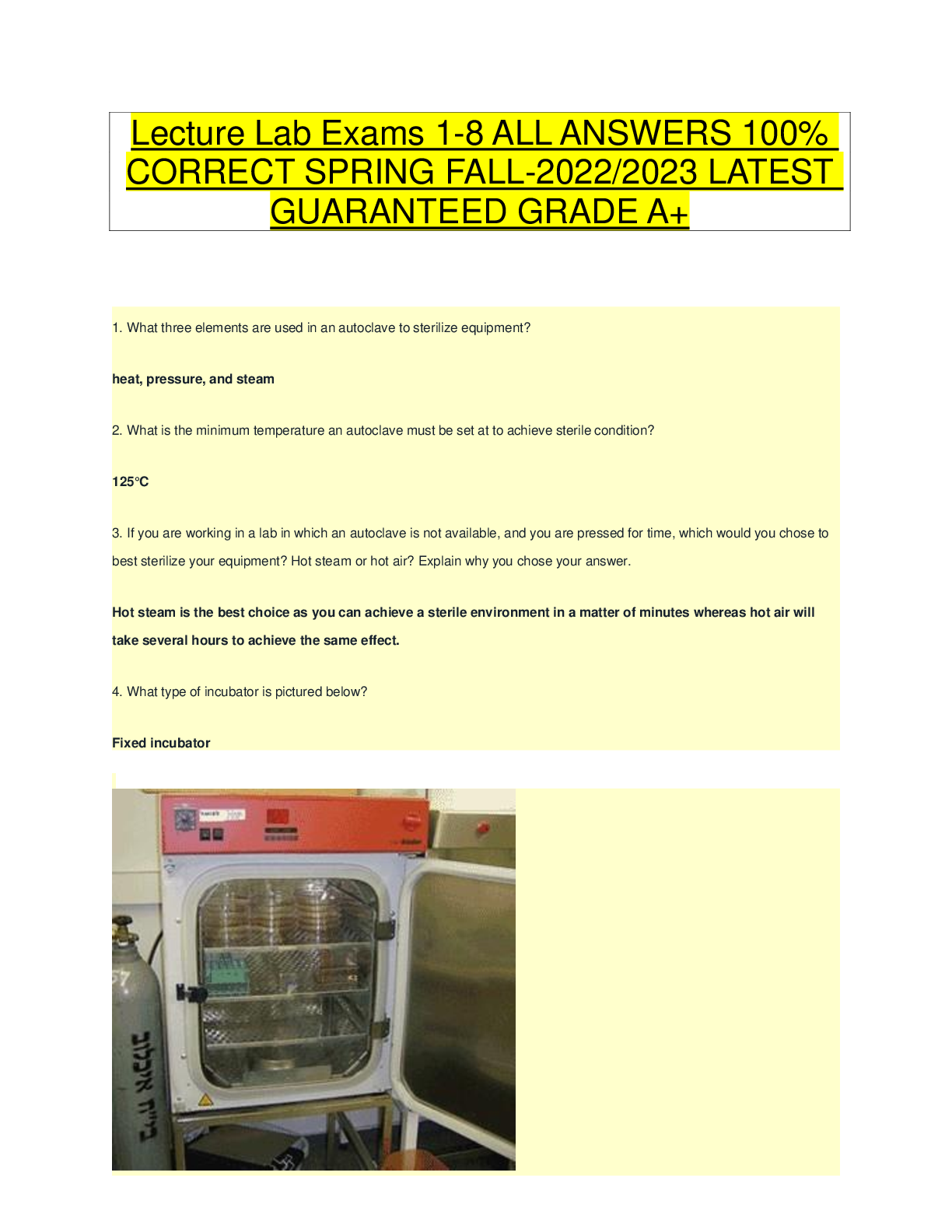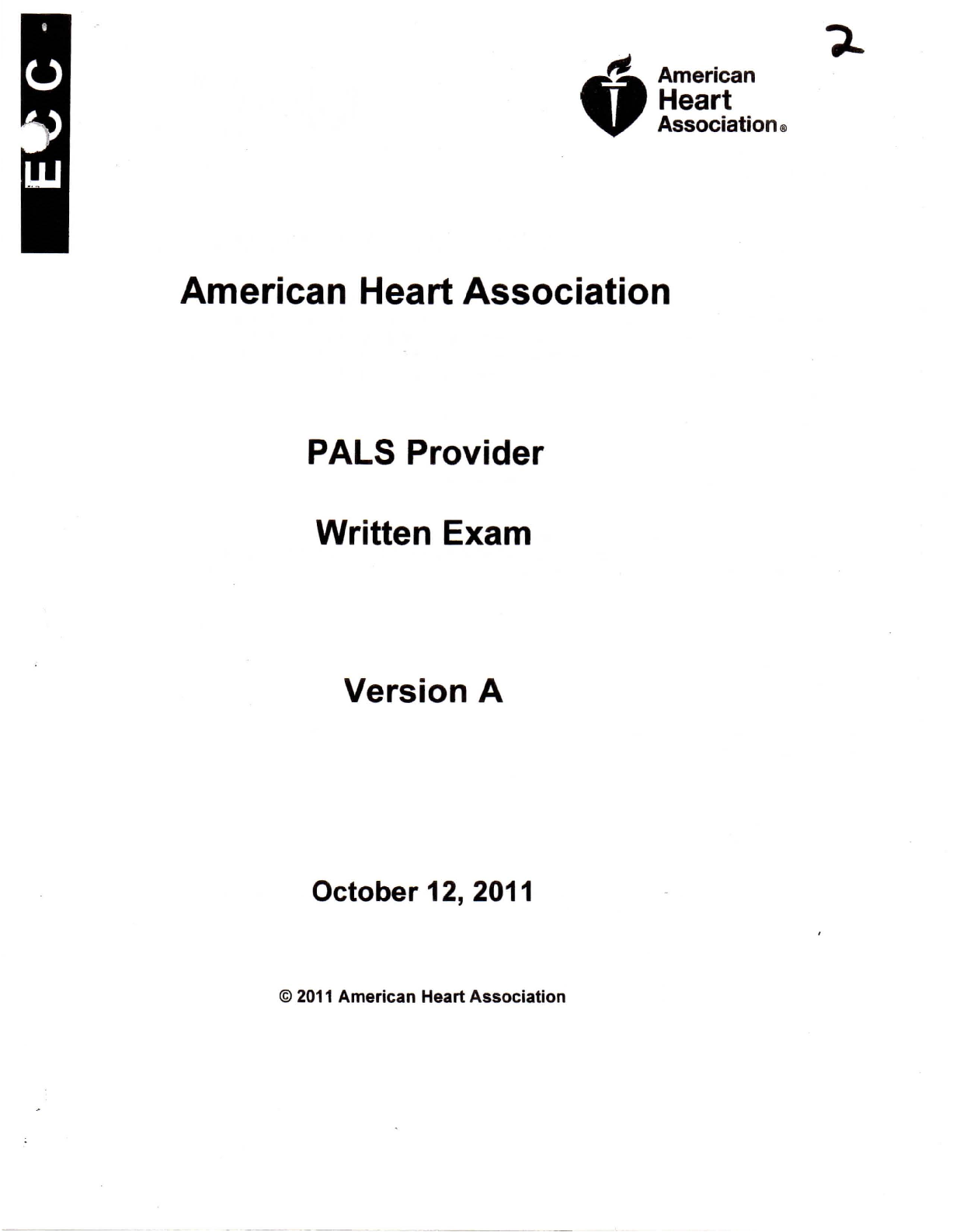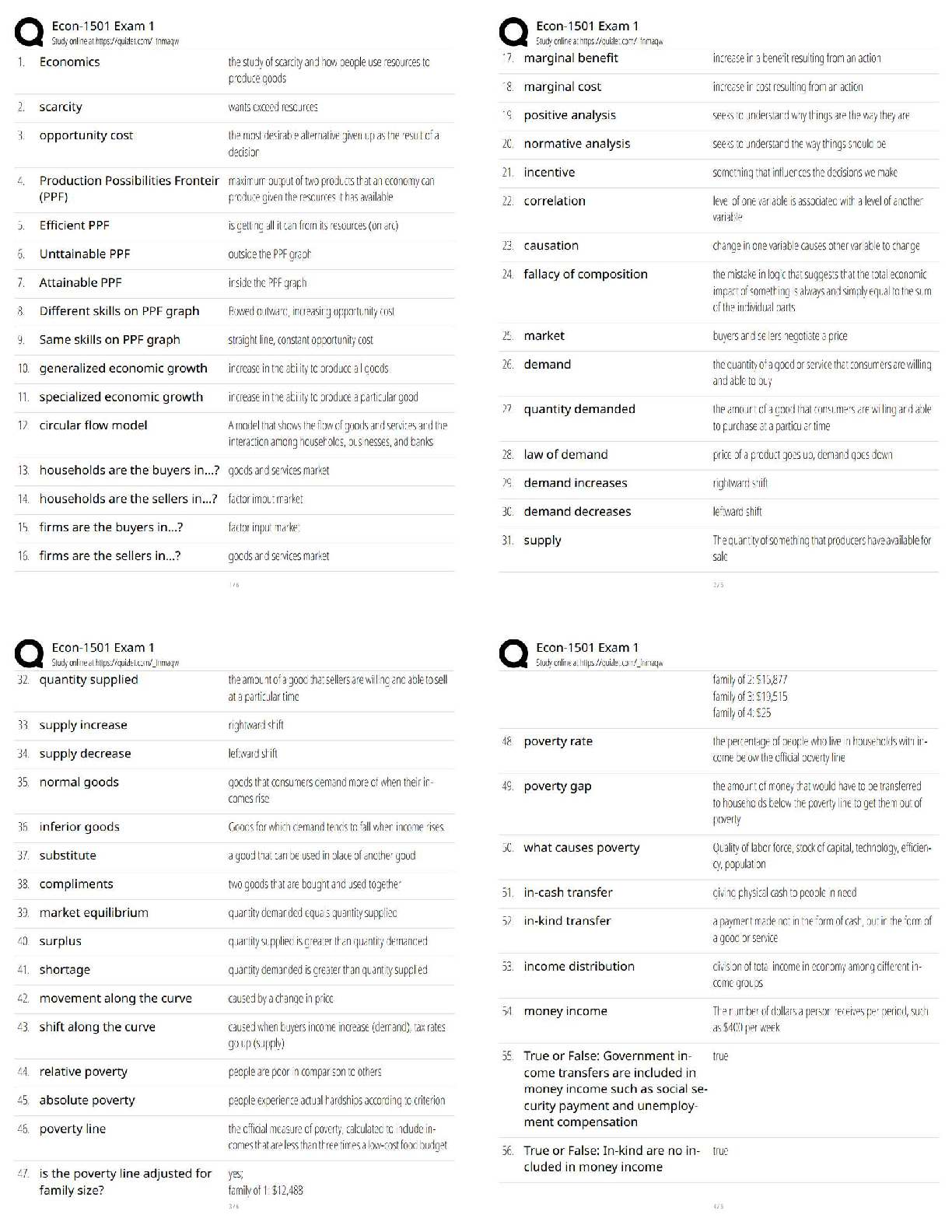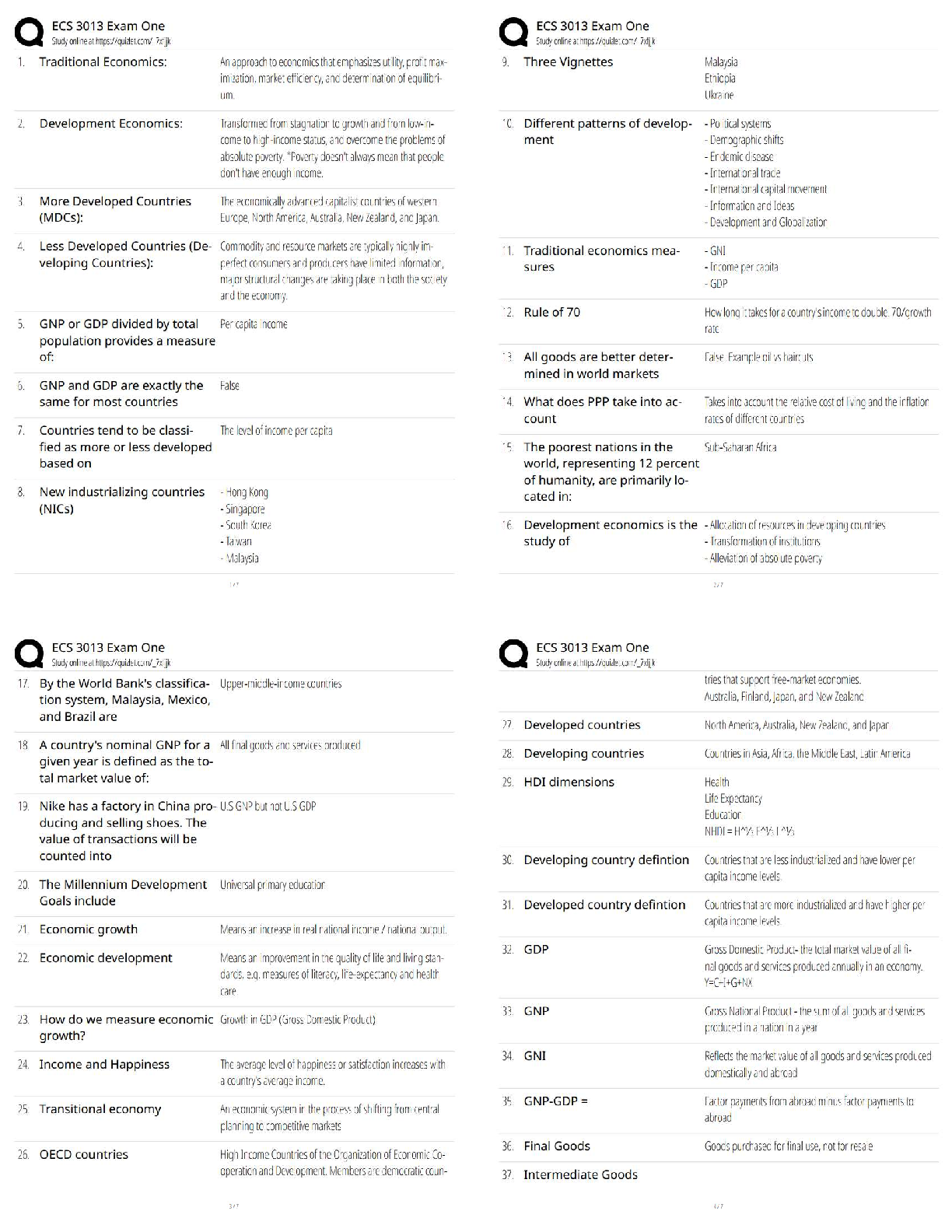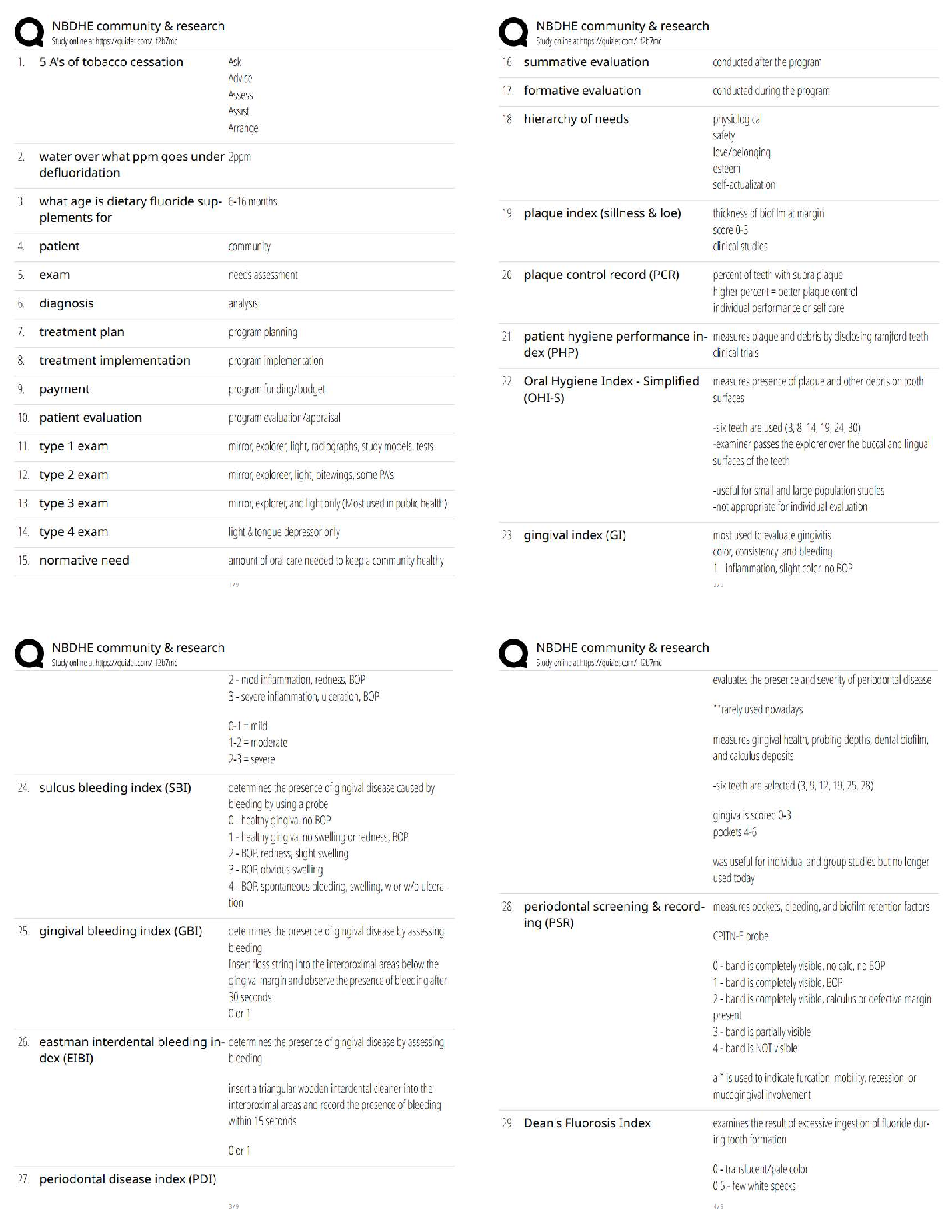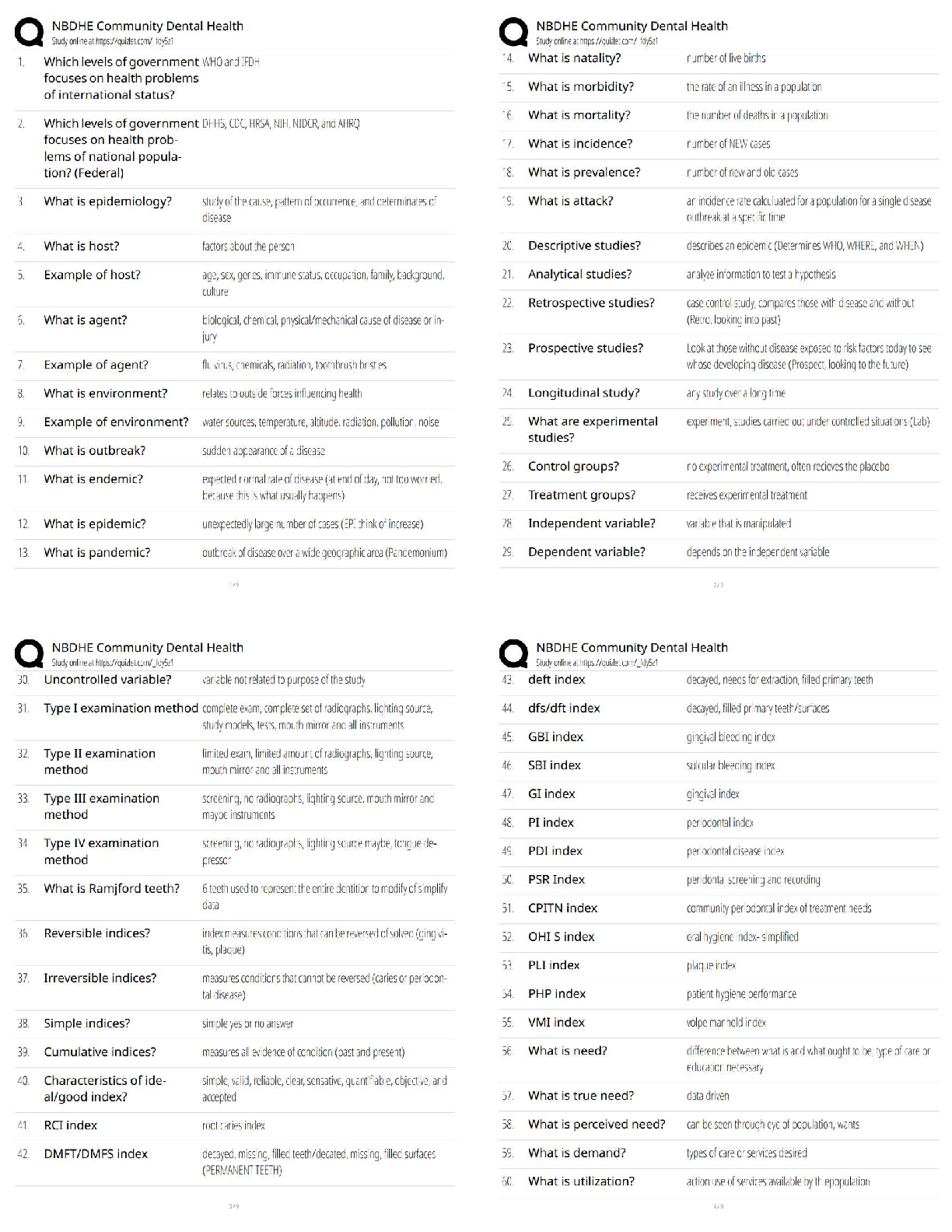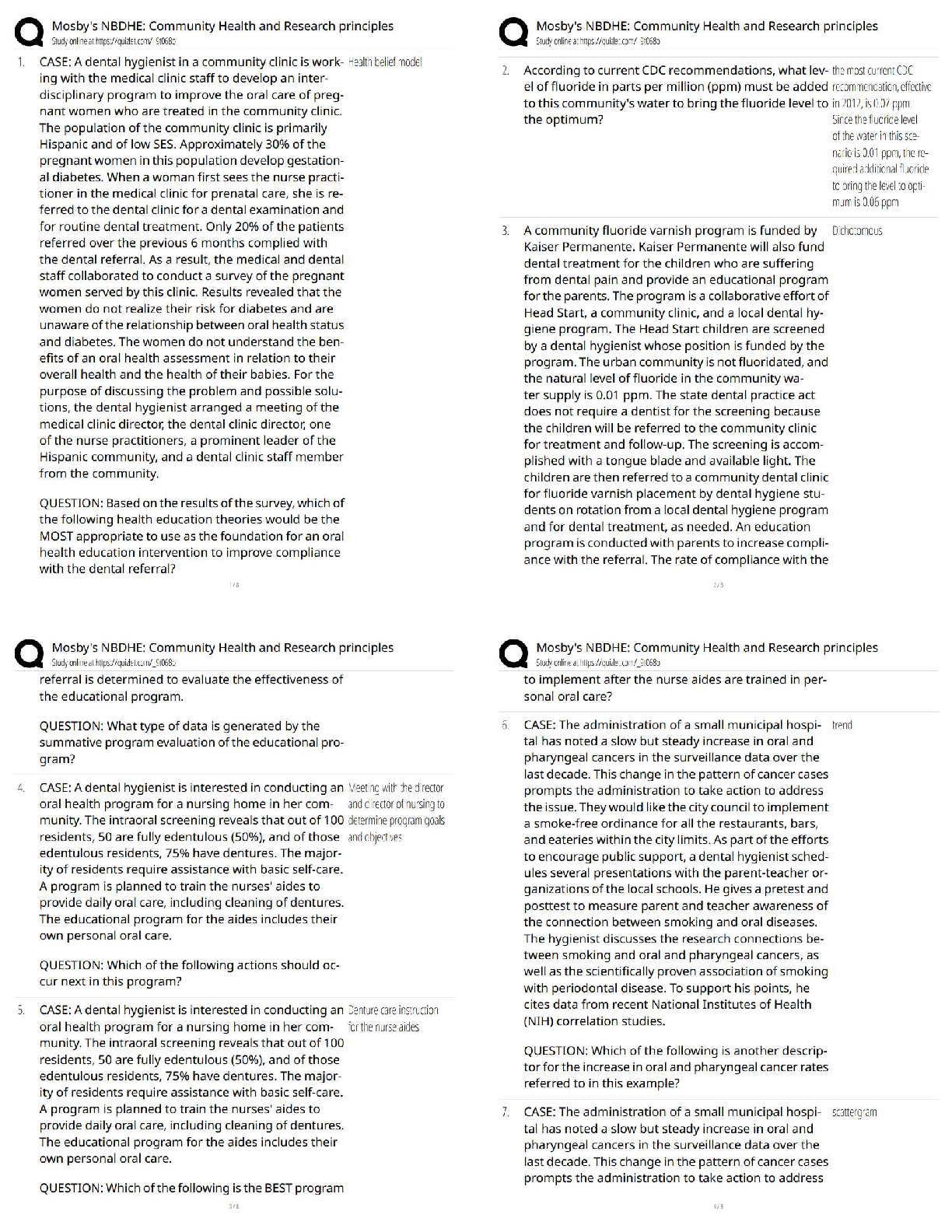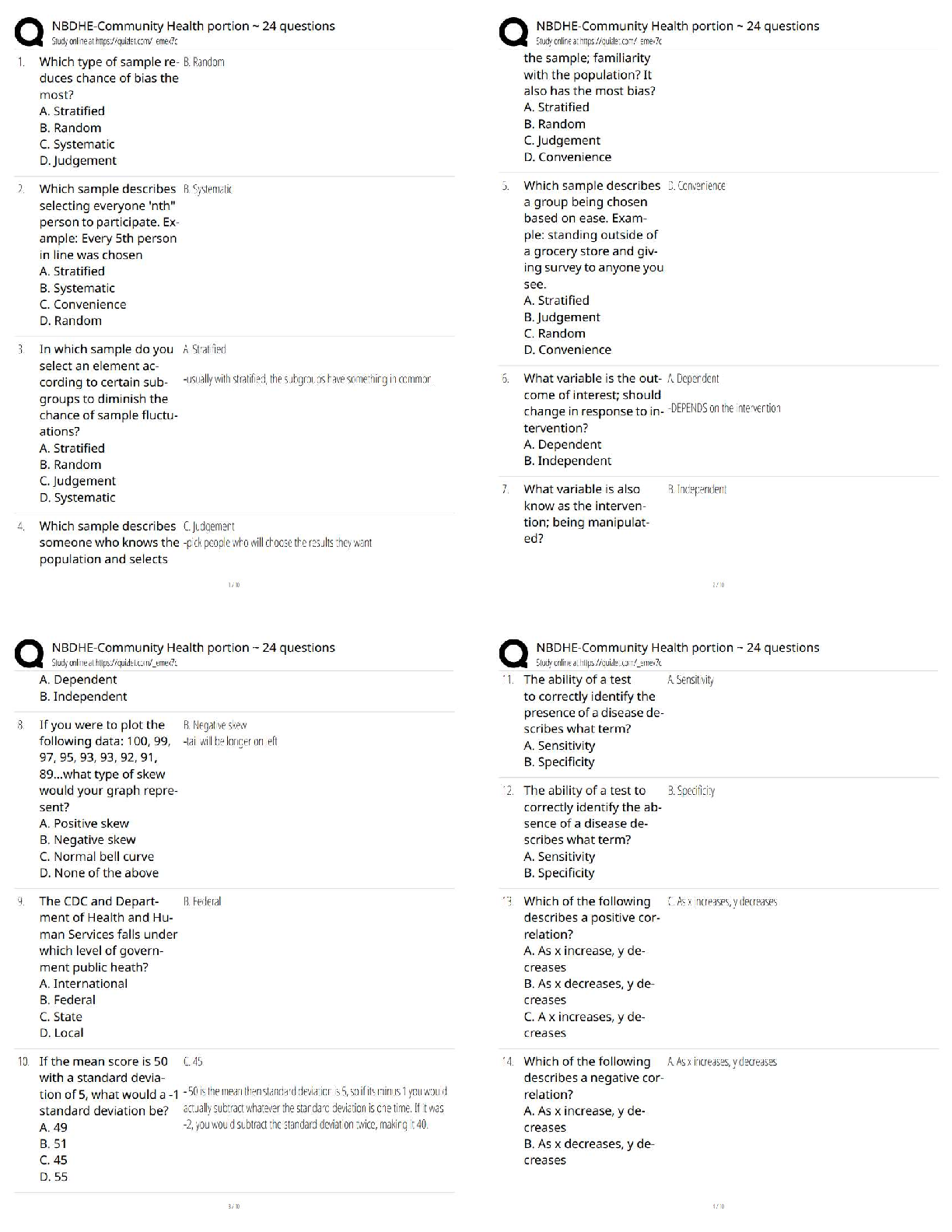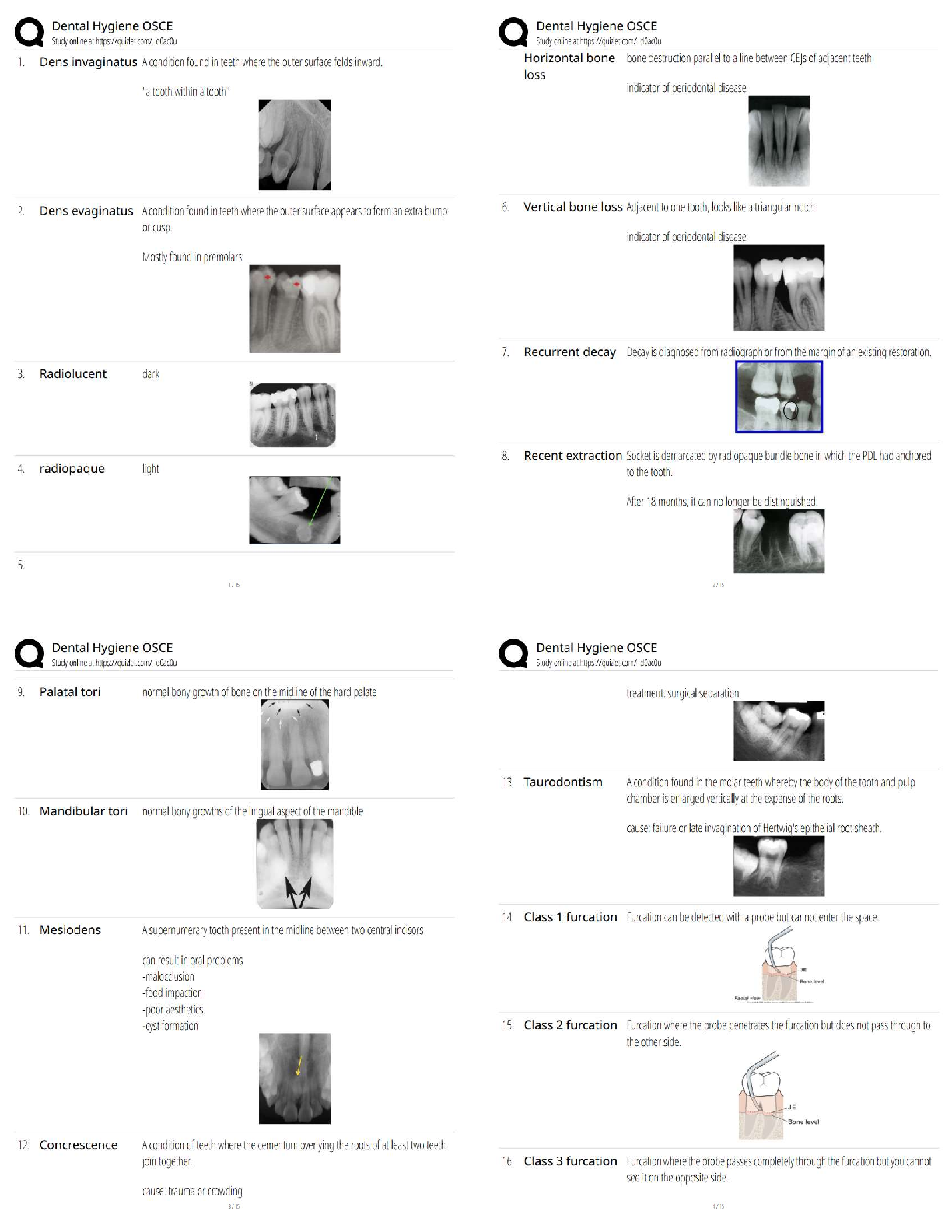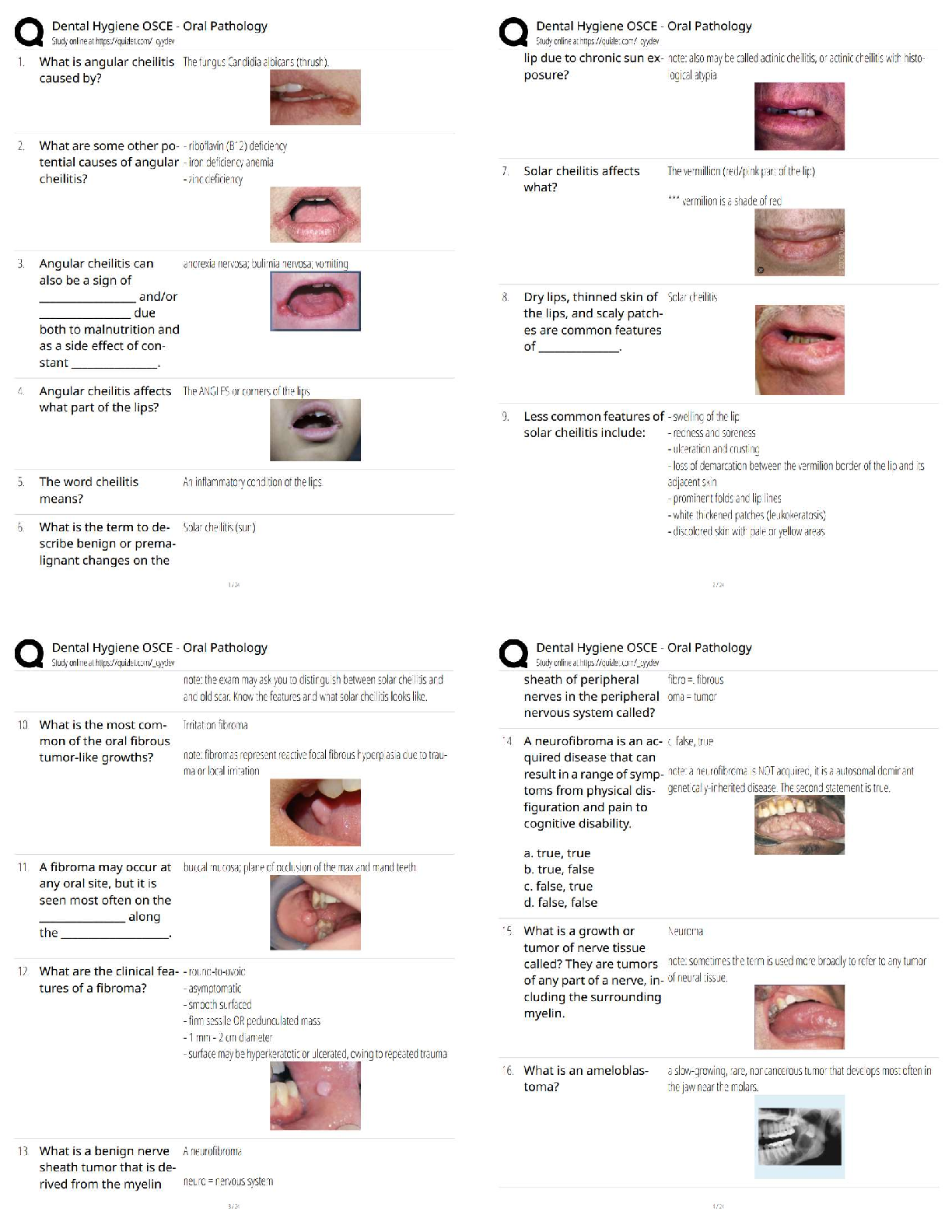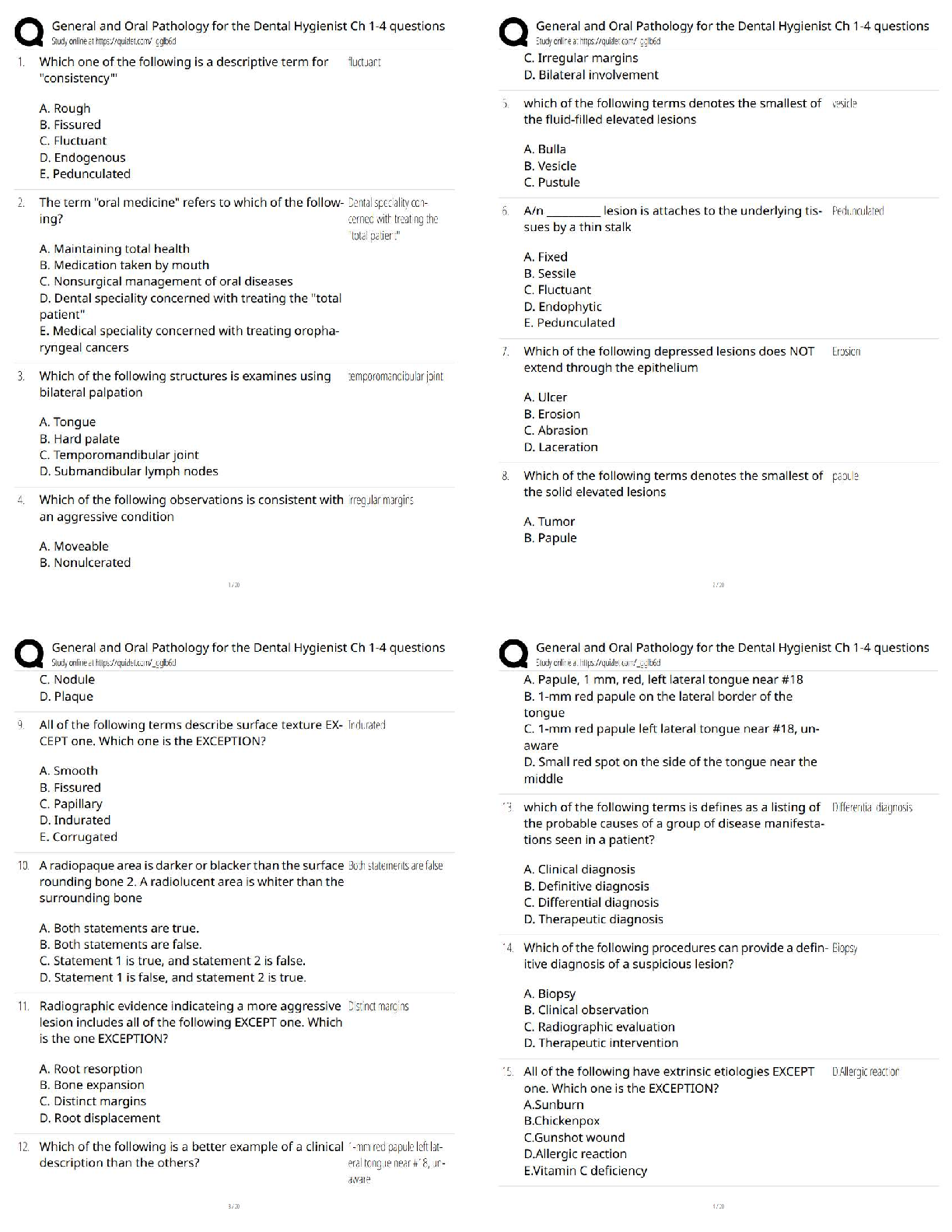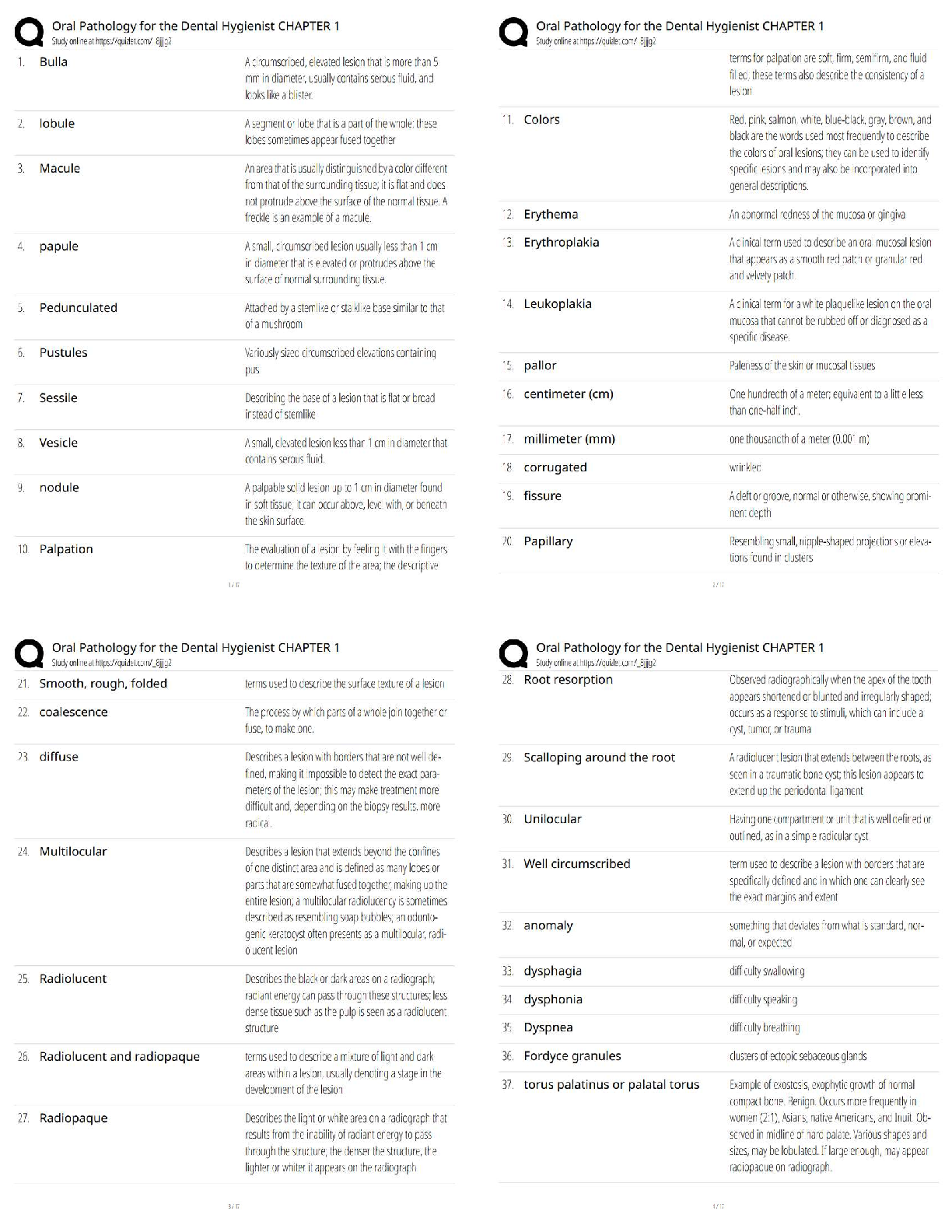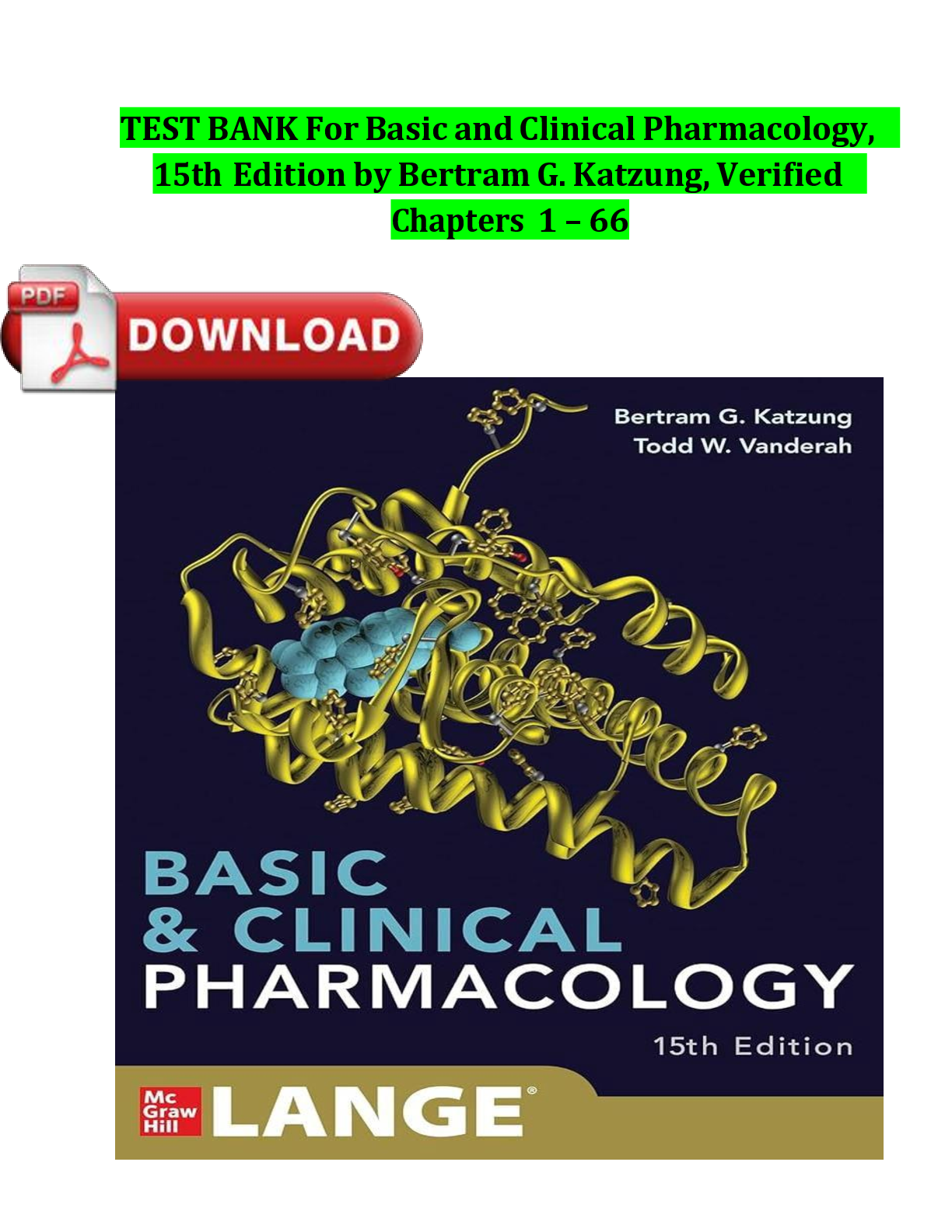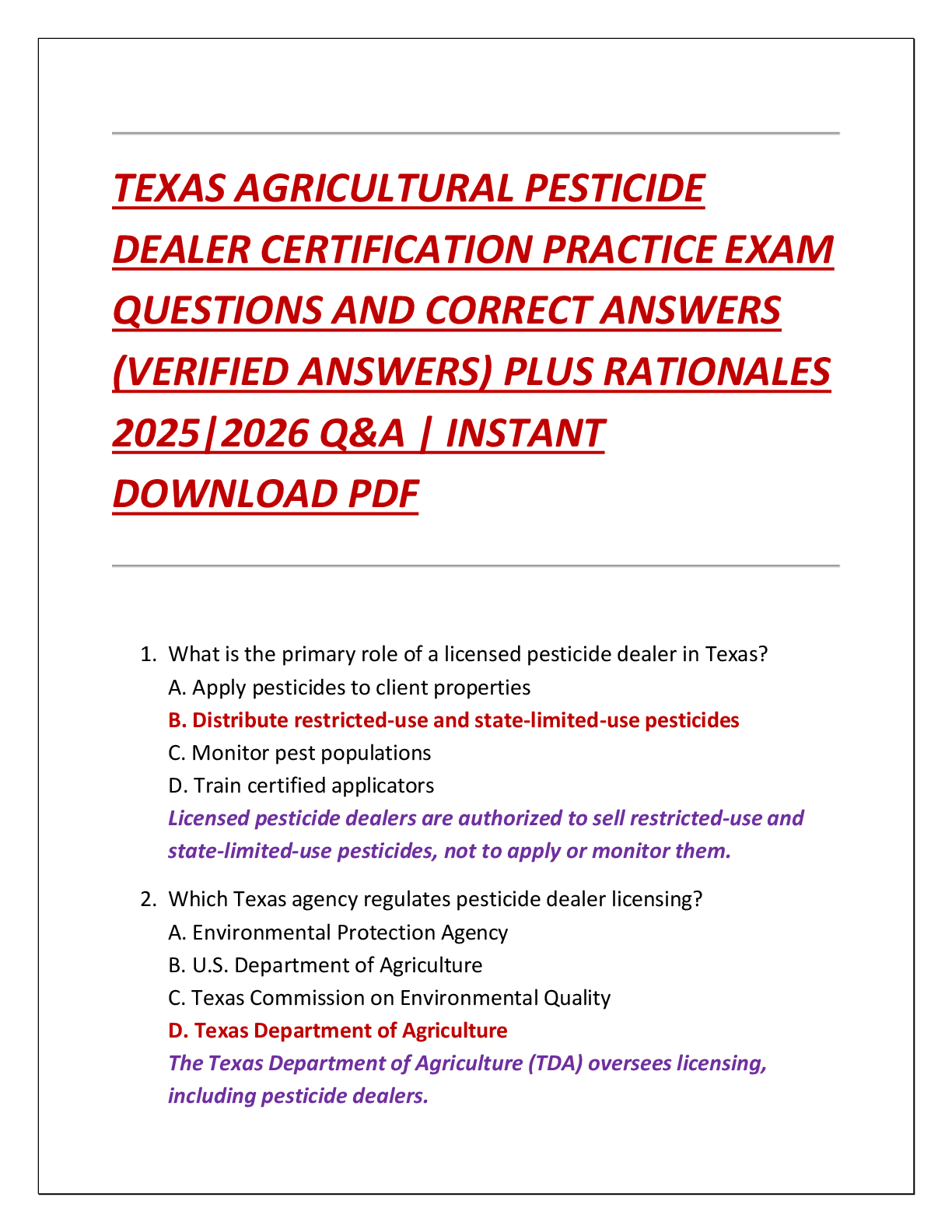Physics > QUESTIONS & ANSWERS > Introduction to Hydration, Fluids, and Electrolyte Disorders - Midterm -Week 4 : (All)
Introduction to Hydration, Fluids, and Electrolyte Disorders - Midterm -Week 4 :
Document Content and Description Below
Question 1.1. (TCO 1) ________ serve as an important source of energy for muscles during times of rest and low-intensity exercise. (Points : 4) Proteins Vitamins Lipids Minerals Question 2.2. (T ... CO 1) Which of the following are examples of carbohydrate-rich foods? (Points : 4) Butter and corn oil Beef and pork Wheat and lentils Bacon and eggs Question 3.3. (TCO 1) Which of the following nutrients contains the element nitrogen? (Points : 4) Carbohydrates Lipids Water Proteins Question 4.4. (TCO 1) Jane consumed a breakfast that contained 85 grams of carbohydrate, 20 grams of protein, and 18 grams of fat. How many kilocalories did Jane eat at breakfast? (Points : 4) 492 kilocalories 582 kilocalories 917 kilocalories 1,107 kilocalories Question 5.5. (TCO 1) ________ are examples of inorganic nutrients. (Points : 4) Vitamins Lipids Carbohydrates Minerals Question 6.6. (TCO 1) Vitamins are classified into two groups, ________ and ________. (Points : 4) fat soluble; water soluble microsoluble; macrosoluble nutritive; nonnutritive major; trace Question 7.7. (TCO 2) Which of the following statements does NOT describe the RDAs (Recommended Dietary Allowances)? (Points : 4) The RDAs are estimated to meet the nutrient requirements of 97-98% of healthy individuals. The RDAs are very helpful in determining the nutrient needs of hospitalized patients. The RDAs were the first reference standards for determining nutrient needs in populations. The RDAs are one set of standards included within the Dietary Reference Intakes (DRIs). Question 8.8. (TCO 2) Suzie is a stay-at-home mom who generally prepares the majority of meals for her household. Even though she always prepares meals that offer enough calories and nutrients for her family of four, she tends to make the same meals again and again. Which one of the characteristics of a healthy diet is Suzie not incorporating into her meal planning? (Points : 4) adequacy balance moderation variety Question 9.9. (TCO 2) The second step of the scientific method is: (Points : 4) observation and description of a phenomenon. testing a research question or hypothesis. generating a hypothesis. collecting data. Question [Show More]
Last updated: 3 years ago
Preview 1 out of 13 pages
.png)
Buy this document to get the full access instantly
Instant Download Access after purchase
Buy NowInstant download
We Accept:

Reviews( 0 )
$8.00
Can't find what you want? Try our AI powered Search
Document information
Connected school, study & course
About the document
Uploaded On
Jul 26, 2022
Number of pages
13
Written in
All
Additional information
This document has been written for:
Uploaded
Jul 26, 2022
Downloads
0
Views
49

